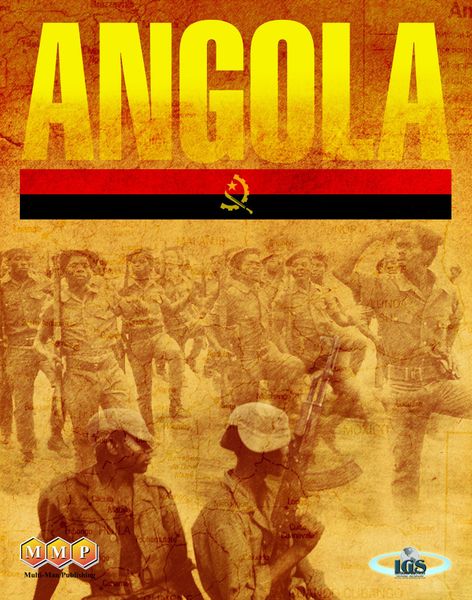Angola is a board game that simulates the Angolan Civil War, which took place from 1975 to
The game focuses on the conflict between the Popular Movement for the Liberation of Angola (MPLA), National Front for the Liberation of Angola (FNLA), and National Union for the Total Independence of Angola (UNITA). Players take on the roles of these factions as they vie for control over Angola during this tumultuous period.Game Components of Angola
Game board depicting AngolaFaction cards and units (FNLA, UNITA, FAPLA, MPLA)Command Decks for each playerVictory TokensDirect Foreign Aid and Covert Foreign Aid tablesDice for initiative and other resolutions
How To Setup Angola
To set up the game, players first place the game board in the middle of the playing area. Each player selects a faction (FNLA, UNITA, FAPLA, or MPLA) and receives the corresponding units and Command Deck. The initial turn order is determined by a dice roll, with each number corresponding to a specific faction. Players then construct their Command Decks for the first turn, planning the activation order of their units.
Gameplay Mechanics and Game Objective
Game Category: Wargame, Area Move, Card-Driven Unit ActivationDesigner: Not explicitly mentioned in available sourcesYear: 1988Objective: The game is designed for four players, with each player aligned in a loose alliance with another. The objective is to accumulate Victory Tokens by controlling cities and towns on the board.Command Deck: Players pre-construct their Command Decks each turn, deciding the order in which their units will be activated.Initiative System: After the first turn, initiative is determined by a dice roll or passes to the player on the left if a 5 or 6 is rolled.Direct and Covert Foreign Aid: Players receive aid based on their control of Victory Tokens, with more tokens reducing the likelihood of receiving aid.Pass Cards: Each player, except FNLA, must include Pass Cards in their Command Deck, forcing them to pass a turn and adding a layer of strategy.
Player Experience
Playing **Angola** requires a unique mindset, especially due to its asymmetric and cooperative-competitive nature. Players must form alliances and work together to achieve victory, while also competing against their opposing alliance. The game’s Command Deck system adds a deep layer of strategy, as players must anticipate their opponents’ and allies’ moves. The inclusion of Pass Cards introduces an element of unpredictability, forcing players to plan carefully and adapt to changing circumstances.
Pros
Unique Initiative System: The initiative mechanism adds a dynamic and unpredictable element to each turn.Deep Strategy: The Command Deck construction phase encourages careful planning and strategic thinking.Asymmetric Gameplay: Each faction has distinct abilities and challenges, enhancing replayability.Cooperative-Competitive: The game fosters teamwork within alliances while maintaining inter-alliance competition.
Cons
Complex Setup: The game requires a significant amount of time and effort to set up and understand the rules.High Learning Curve: The unique mechanics and alliance dynamics can be overwhelming for new players.Pass Cards: While strategic, the mandatory Pass Cards can be frustrating if not planned for effectively.
Personal Thoughts on Angola
**Angola** is a game tailored for experienced wargamers and those who enjoy complex, strategic gameplay. It is ideal for players who appreciate asymmetric designs and the challenges of cooperative-competitive play. The game’s unique mechanics and historical context make it a compelling choice for those interested in the Angolan Civil War and its geopolitical implications. However, it may not be the best fit for casual gamers due to its complexity and steep learning curve.
We are supported by our audience. When you purchase through links on our site, we may earn an affiliate commission, at no extra cost for you. Learn more.

